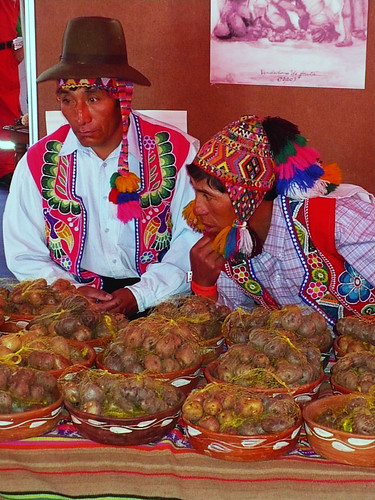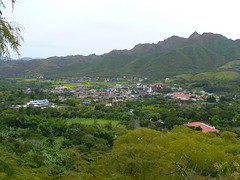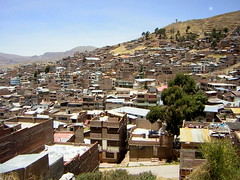Could the potato help reduce rural poverty?
With more than three thousand varieties, could Peru use its native staple to help reduce impoverished campesinos?
By Efraín Gonzáles, Economist, Pontificia Universidad Católica del Perú
John Murra, celebrated author of the complementarity theory of ecological levels, showed that the expansion of the Andean empires, was possible when people were able to domesticate corn, a product that could be stored for long periods of time unlike the potato. For this reason the potato was considered for years as a produce for the poor to be grown by the poor.
This perception is strengthened if we take into account that each time there are good potato harvests, the price drops through the floor and rural poverty increases.
 However, the potato has varieties that can be grown from zero to 4000 metres above sea level, a crop that can be grown anywhere in Peru and probably the only that guarantees minimum levels of food for the rural poor. For that reason it is extremely important for a subsistence economy.
However, the potato has varieties that can be grown from zero to 4000 metres above sea level, a crop that can be grown anywhere in Peru and probably the only that guarantees minimum levels of food for the rural poor. For that reason it is extremely important for a subsistence economy.
Is it possible to think that with these characteristics however, that the potato could be a means of development? We think so, but with one condition: that the nature of the demand is changed. If the potato is only used for French fries no, but if we can add value, it’s a different story.
The potato as an input for industry is the way to involve farmers in development. But we need research and technological innovation to industrialize.
Ideally, that is any procedure or any variety that serves to produce, for example, biofuel at a competitive price. Thus, the potato would serve to move vehicles, and it would become an industrial input and final consumer product and perhaps its prices would be higher as a result of the new type of demand, which would dramatically improve farmers income.
This is just an innovative idea, as there may be other applications for the potato, which must be investigated. The idea is to make a virtue of necessity. The ball is in the universities’ court.










